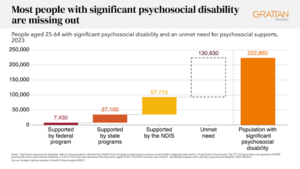
Research published in March 2024 highlights that many individuals who self-diagnose gluten intolerance may actually be affected by a group of carbohydrates known as FODMAPs. This finding challenges the common perception that gluten is the primary culprit in gastrointestinal distress for those without coeliac disease.
According to researchers at the University of Melbourne, FODMAPs—fermentable oligosaccharides, disaccharides, monosaccharides, and polyols—are linked to more common gut symptoms than gluten. The study emphasizes that many people are unnecessarily eliminating gluten from their diets without medical guidance, potentially missing out on essential nutrients.
The research team analyzed data from various studies, observing that individuals often report significant relief from gut discomfort after reducing FODMAP intake rather than gluten. This suggests that FODMAPs, found in foods such as certain fruits, vegetables, legumes, and dairy products, could be the main offenders for many people.
Implications for Dietary Choices
The implications of this research are far-reaching. Many individuals who believe they have gluten intolerance might be misinformed, leading to unnecessary dietary restrictions. This can result in a lack of variety in their diets, which may impact overall health and wellness.
Dr. Sarah Thompson, a leading gastroenterologist involved in the study, stated, “It’s crucial for individuals experiencing gastrointestinal issues to consult with healthcare professionals rather than self-diagnosing. Understanding the role of FODMAPs can lead to more effective dietary adjustments.”
The study’s findings are significant in a world where gluten-free diets have become increasingly popular, despite a relatively small percentage of people diagnosed with coeliac disease, which affects approximately 1% of the global population. The rise in gluten-free labels across products has contributed to a growing misconception about gluten’s role in digestive health.
Encouraging Professional Guidance
In light of the study, health professionals are encouraged to promote an evidence-based approach to dietary changes. Individuals experiencing gut-related symptoms should consider comprehensive testing and consultation with a qualified dietitian.
Focusing on FODMAPs rather than gluten may not only help alleviate symptoms for many but also prevent the unnecessary exclusion of gluten-containing foods that can be part of a balanced diet. This shift in understanding can foster better health outcomes and improve quality of life for those affected.
The research serves as a reminder that while self-diagnosis might seem convenient, it is essential to seek professional advice to ensure dietary choices are both informed and beneficial.






